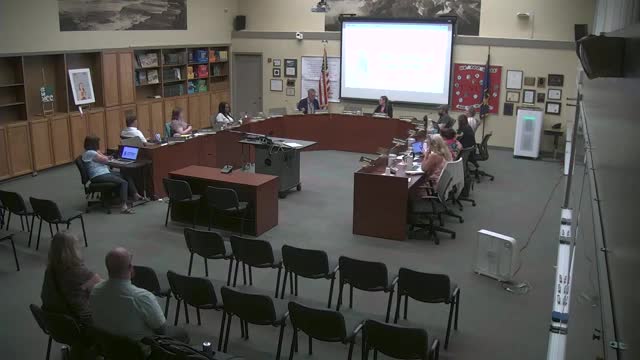School Board Considers Bold Changes to Cell Phone Policy
August 09, 2024 | David Douglas SD 40, School Districts, Oregon
This article was created by AI summarizing key points discussed. AI makes mistakes, so for full details and context, please refer to the video of the full meeting. Please report any errors so we can fix them. Report an error »

During a recent government meeting, key discussions centered around educational funding, special education policies, and the ongoing challenges posed by student cell phone usage in schools.
The meeting highlighted the need for increased funding in various areas, including a proposal to eliminate the 11% cap on special education funding and to increase the poverty weight from 0.25% to 5.5%. Additionally, there was significant conversation about redirecting corporate kicker funds and providing necessary support for high-cost disabilities. These proposals are gaining traction, although the speaker acknowledged the difficult task facing the legislature, given the limited budgetary resources.
Concerns were also raised regarding the reality of the Quality Education Model (QEM) funding, which, despite being a proposed figure, may not be fully funded. The speaker noted rising unemployment rates and their impact on the budget, alongside anticipated increases in public employee retirement system (PERS) costs. These factors are contributing to a challenging financial landscape for educational institutions.
Another significant topic was the potential exploration of an operating levy, as discussions around this have emerged in various districts, including East County and Salem. The speaker indicated that individual board members have expressed interest in pursuing this option, suggesting that a polling group might be engaged to gauge community support.
The meeting also addressed the ongoing issue of cell phone usage in schools. The speaker reported that while a proposal for a $300,000 solution to manage cell phone use was not feasible within the current budget, discussions about the topic would continue. Input from students will be sought through surveys and feedback mechanisms to better understand their perspectives on cell phone policies.
Board members shared experiences from other schools, such as Beaumont Middle School, which successfully implemented a cell phone ban with clear guidelines and communication. The conversation emphasized the importance of planning and community buy-in for any new policies regarding cell phone usage, with suggestions for pilot programs to assess effectiveness.
Overall, the meeting underscored the complexities of educational funding and policy implementation, as well as the need for ongoing dialogue with students and the community to address pressing issues in schools.
The meeting highlighted the need for increased funding in various areas, including a proposal to eliminate the 11% cap on special education funding and to increase the poverty weight from 0.25% to 5.5%. Additionally, there was significant conversation about redirecting corporate kicker funds and providing necessary support for high-cost disabilities. These proposals are gaining traction, although the speaker acknowledged the difficult task facing the legislature, given the limited budgetary resources.
Concerns were also raised regarding the reality of the Quality Education Model (QEM) funding, which, despite being a proposed figure, may not be fully funded. The speaker noted rising unemployment rates and their impact on the budget, alongside anticipated increases in public employee retirement system (PERS) costs. These factors are contributing to a challenging financial landscape for educational institutions.
Another significant topic was the potential exploration of an operating levy, as discussions around this have emerged in various districts, including East County and Salem. The speaker indicated that individual board members have expressed interest in pursuing this option, suggesting that a polling group might be engaged to gauge community support.
The meeting also addressed the ongoing issue of cell phone usage in schools. The speaker reported that while a proposal for a $300,000 solution to manage cell phone use was not feasible within the current budget, discussions about the topic would continue. Input from students will be sought through surveys and feedback mechanisms to better understand their perspectives on cell phone policies.
Board members shared experiences from other schools, such as Beaumont Middle School, which successfully implemented a cell phone ban with clear guidelines and communication. The conversation emphasized the importance of planning and community buy-in for any new policies regarding cell phone usage, with suggestions for pilot programs to assess effectiveness.
Overall, the meeting underscored the complexities of educational funding and policy implementation, as well as the need for ongoing dialogue with students and the community to address pressing issues in schools.
View the Full Meeting & All Its Details
This article offers just a summary. Unlock complete video, transcripts, and insights as a Founder Member.
✓
Watch full, unedited meeting videos
✓
Search every word spoken in unlimited transcripts
✓
AI summaries & real-time alerts (all government levels)
✓
Permanent access to expanding government content
30-day money-back guarantee

